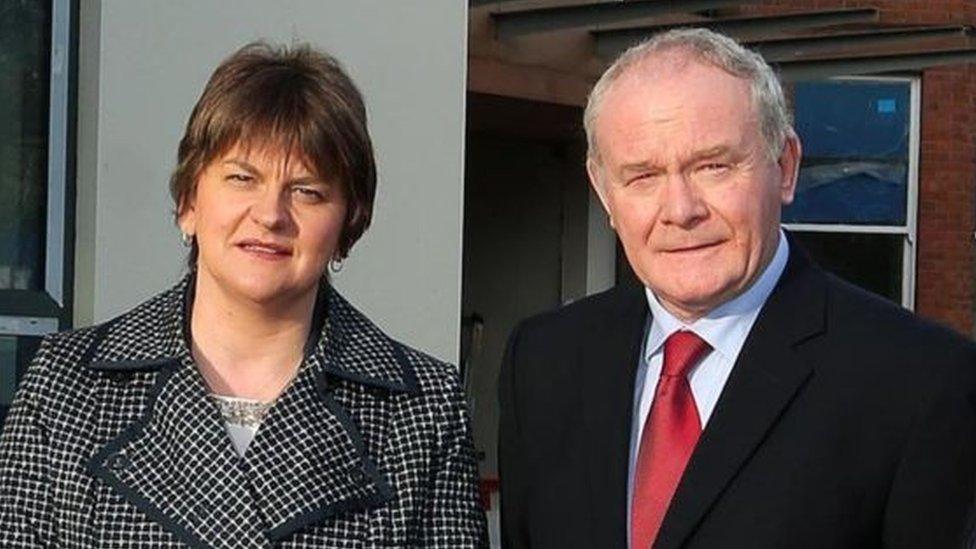Brexit: Heavily fortified Irish border won't work, says Charlie Flanagan
- Published
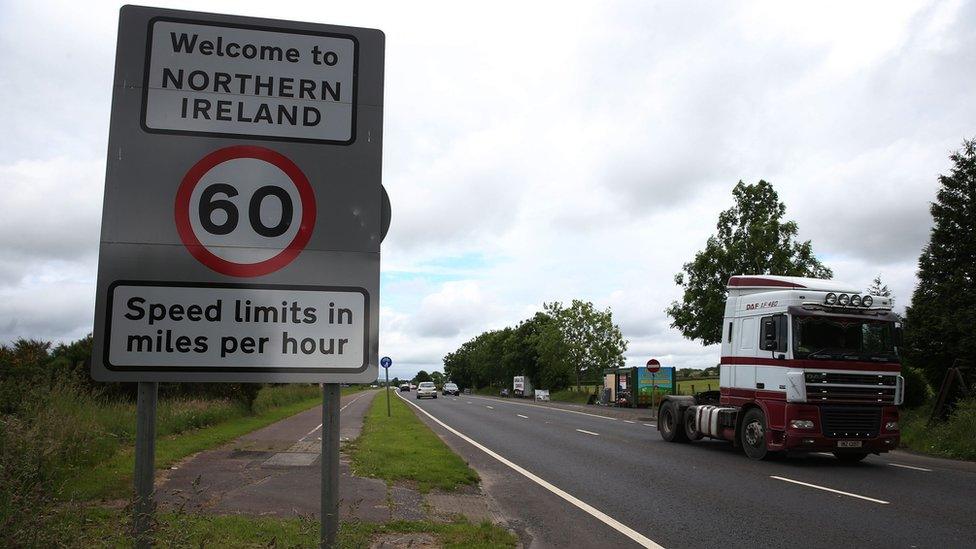
The only mark of the border between the Republic of Ireland and the UK is the "change in the road signs", Charlie Flanagan said
A "heavily fortified" border between Northern Ireland and the Republic of Ireland after the UK's exit from the EU would be "simply inoperable", an Irish government minister has claimed.
Charlie Flanagan said the UK and the Irish Republic must maintain their "invisible border" after Brexit.
The Common Travel Area allows people to move between the UK and the Republic without passport checks.
But some politicians have said that arrangement could now be in doubt.
Once the UK leaves the EU, its border with the Republic, an EU member state, will be its only land boundary with the union.
Mr Flanagan, the foreign affairs minister, said a border with tight security measures to prevent migrants entering Northern Ireland "won't work".
"It is absolutely essential that every effort be made to ensure the existence of what is an invisible border," he told BBC Radio 4's The World This Weekend.
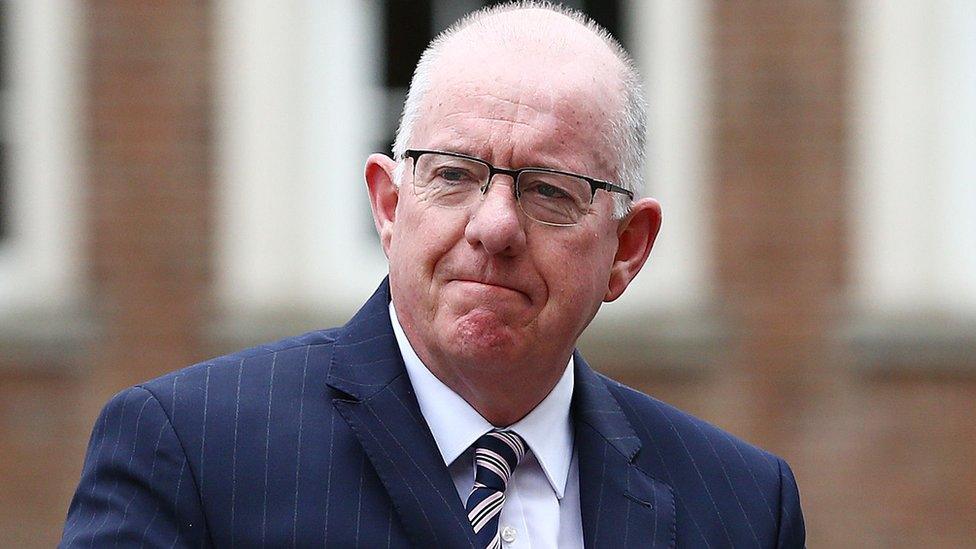
Mr Flanagan said there is a need to "minimise encumbrance and bureaucracy" that could result from Brexit
"The only visible sign is the change in the road signs from miles to kilometres as you cross from north to south.
"Any suggestion that there will be a heavily fortified EU frontier, or a heavily fortified border, be it for customs and trade on the one hand, or for security and immigration on the other, is simply inoperable."
Permissions
Theresa Villiers, a former Northern Ireland secretary who campaigned for a Leave vote in last month's referendum, also said the border should remain open.
"There would be, perhaps, some risk that non-Irish EU citizens might enter the UK over that land border," she said.
"But the way you tackle people who come and work in the UK without the appropriate permissions is through measures such as cracking down on employing illegal workers."
Ms Villiers added that the border was not "policed in a significantly hard way, even during the height of the Troubles".
"The idea of imposing, suddenly, a whole host of new border checks frankly isn't practical and it's certainly not desirable," she said.
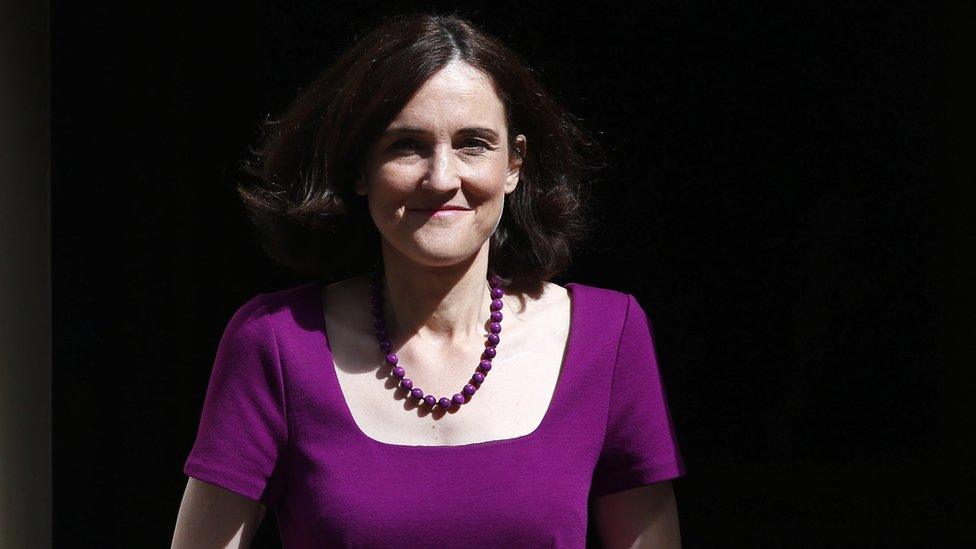
Theresa Villiers said the Irish border should remain open in spite of the risk of illegal immigration
Mr Flanagan also said a suggestion that the UK could pull out of the EU customs union is a "matter of concern to Ireland".
Last week, the Financial Times reported that International Trade Secretary Liam Fox was putting pressure on Prime Minister Theresa May to withdraw from the customs union, which reduces administrative and financial trade barriers, to give him maximum freedom to negotiate new trade deals around the world.
Mr Flanagan said he was "very surprised" by the comments attributed to Dr Fox.
"I believe it would result in a situation where there would be a lot of paperwork and consequent red tape," he said.
"We need to minimise encumbrance and bureaucracy.
"I felt [a UK withdrawal from the EU] was always going to be bad for business, bad for trade, bad for commerce, bad for people.
"We need to ensure that the adverse consequences are minimised."
- Published25 July 2016
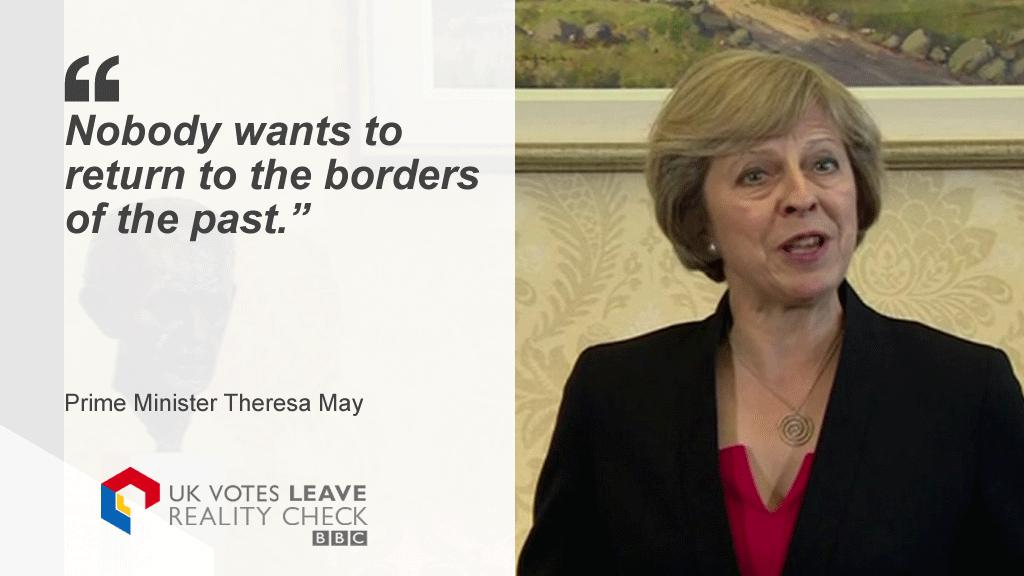
- Published25 July 2016
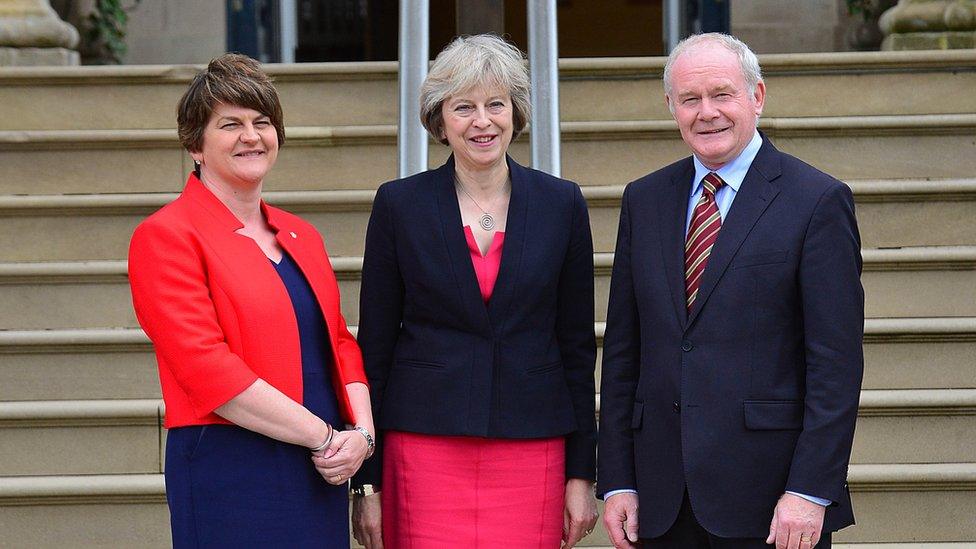
- Published22 July 2016
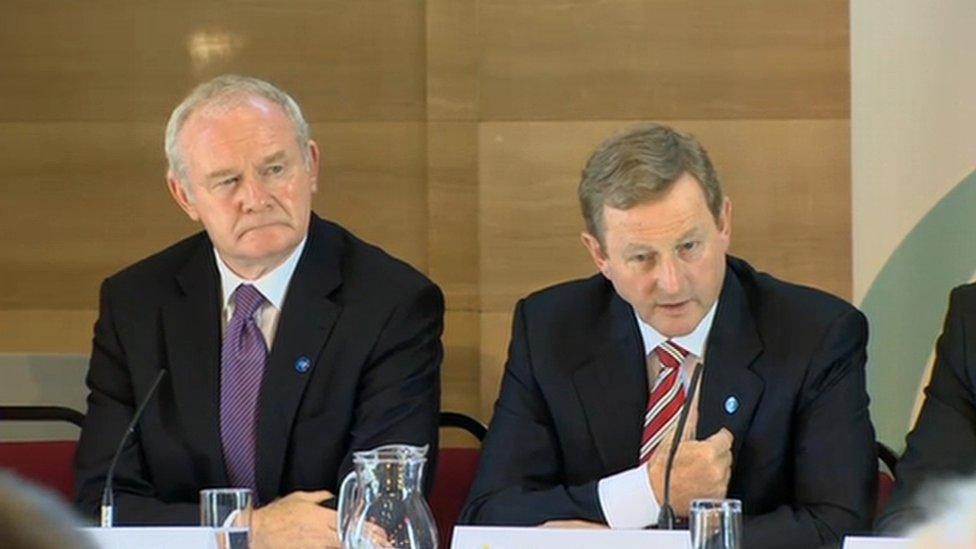
- Published22 July 2016
